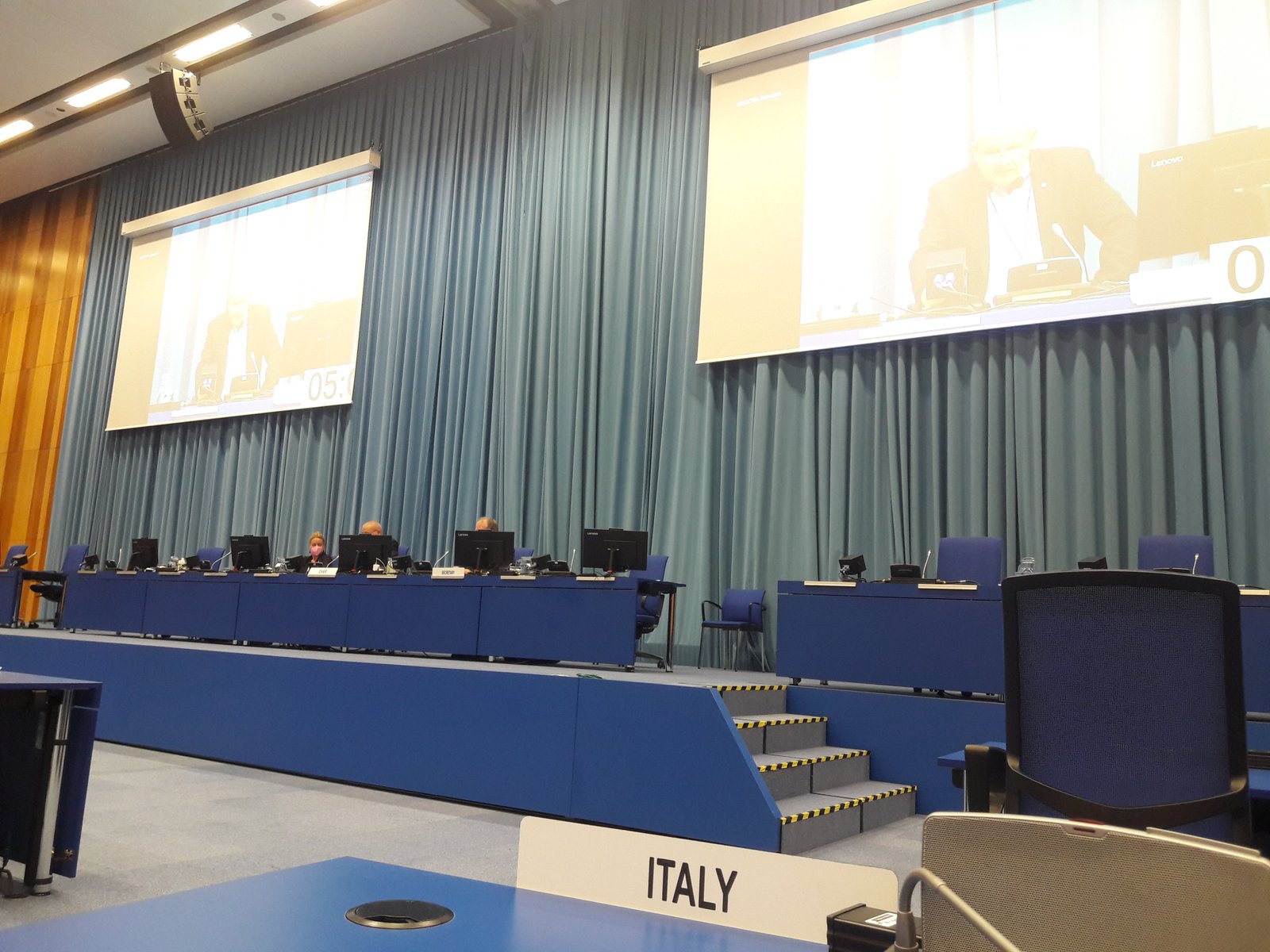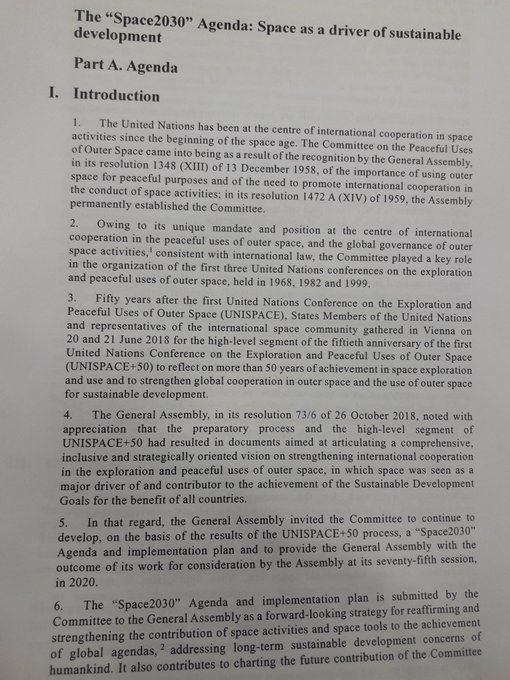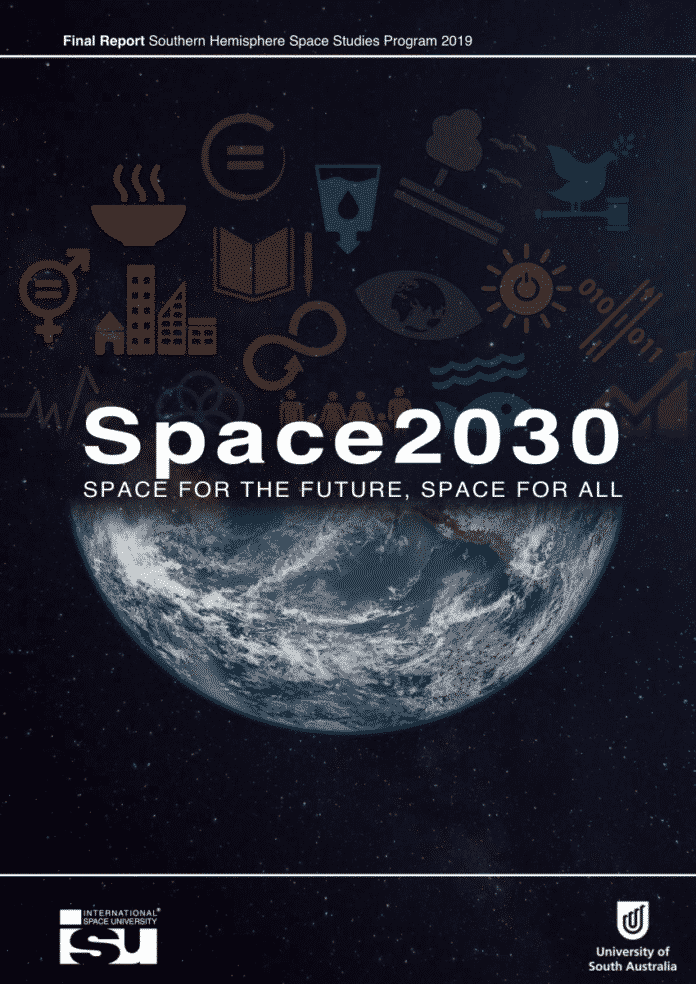VIENNA, SEPTEMBER 2 – After three years of negotiations in which Italy played the role of co-facilitator, the 64th session of the Committee on the Peaceful Uses of Outer Space (COPUOS) has finalized the text of the Space2030 Agenda, a strategic document that will help mobilize space technologies and applications to achieve the goals of sustainable development.
COPUOS is the UN body dedicated to international cooperation on outer space issues. The current session, which closes tomorrow, opened on August 25.
 The Space2030 Agenda initiative was launched in June 2018 during the UNISPACE+50 Conference convened to celebrate the 50th anniversary of the first United Nations Conference on Space. The event was accompanied by the adoption of a General Assembly resolution (73/6) celebrating the achievements of the past 50 years and charting the direction of the international cooperation for the peaceful use of space for the coming years.
The Space2030 Agenda initiative was launched in June 2018 during the UNISPACE+50 Conference convened to celebrate the 50th anniversary of the first United Nations Conference on Space. The event was accompanied by the adoption of a General Assembly resolution (73/6) celebrating the achievements of the past 50 years and charting the direction of the international cooperation for the peaceful use of space for the coming years.

Building on this resolution, during the session of the Committee on the Peaceful Uses of Outer Space (COPUOS) immediately following UNISPACE+50, a working group was established to develop the “Space2030 Agenda” through which the international community aimed to enhance and strengthen the contribution of space activities to the achievement of sustainable development goals. Examples of the application of space technologies to the achievement of the UN 2030 Agenda are countless: among them, support for the telecommunications system, continuous monitoring of phenomena related to deforestation, climate change, mapping of migration flows, epidemiological surveillance, improvement of agricultural production and responses to natural disasters.
The working group formed in 2018 was led by a bureau composed of a President (Jordan) and two Vice Presidents (Italy and Romania). The three years negotiation of the text was then facilitated by the two Vice Presidencies (for Italy by Ambassador Maria Assunta Accili until 2019 and then by Ambassador Alessandro Cortese). As facilitator, Cortese chaired numerous formal and informal negotiating sessions, including during the present COPUOS session. The United Nations Office for Outer Space Affairs (UNOOSA), chaired by Italian astrophysicist Simonetta Di Pippo, supported the process in its capacity as COPUOS Secretariat.
The Agenda text just finalized will now be transmitted to the General Assembly, where it will be formally adopted in a few weeks by means of an ad hoc resolution.
The “Space2030 Agenda” is articulated around four pillars: space society, space economy, space accessibility and space diplomacy. The document offers a strategic vision (and concrete tools and initiatives) to strengthen and systematize the contribution of space applications to the achievement of the objectives defined in the main global agendas, in particular the Agenda for Sustainable Development, the Paris Agreement on Climate, the Sendai Framework for Disaster Risk Reduction. The text is a very important result for COPUOS, which demonstrated its ability to advance – through consensual modalities – the definition of policies for global cooperation in the peaceful use of outer space. (@OnuItalia)

